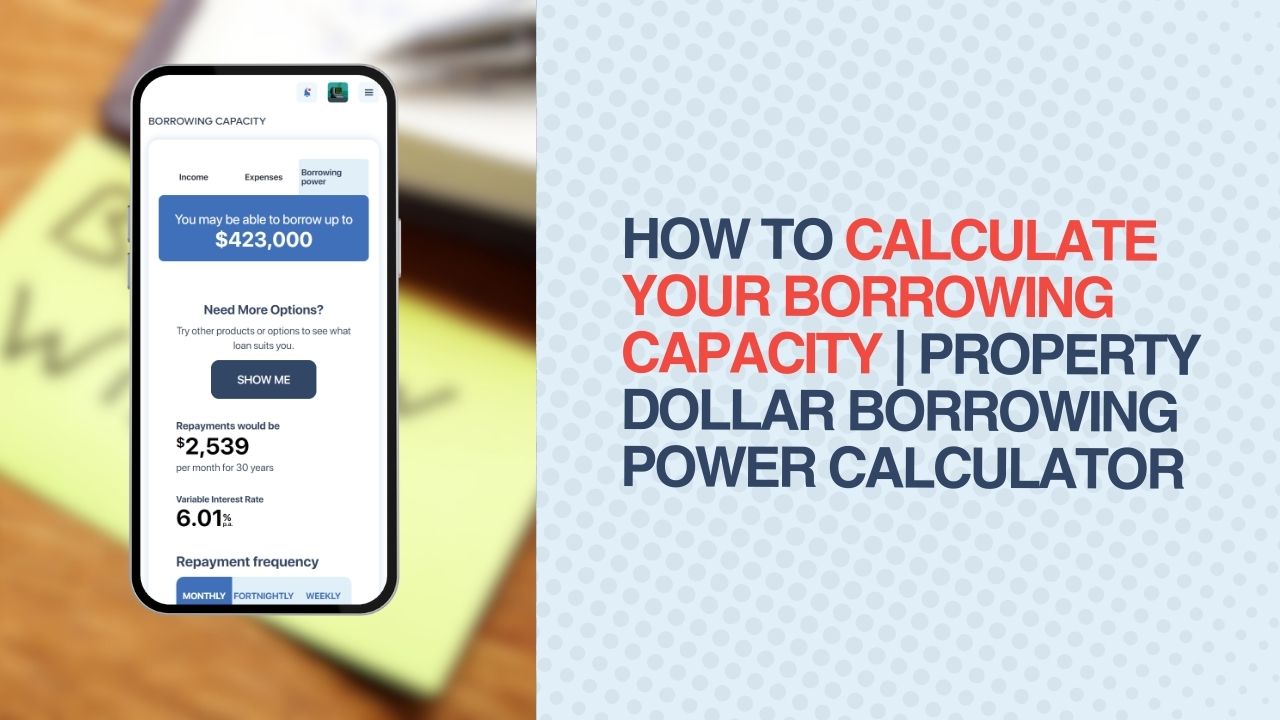How to Calculate Your Borrowing Capacity | Property Dollar Borrowing Power Calculator
- September 16, 2024

At some point in life, most people will consider taking out a loan—whether it’s for a home, car, or business. One of the first things you need to understand before borrowing is your borrowing capacity. This is the maximum amount of money a lender is likely to give you based on your financial situation.
Lenders calculate borrowing capacity using specific formulas, but there are key factors that almost every lender will consider when determining how much you can borrow. Understanding these factors can help you plan better and even improve your borrowing capacity.
What is Borrowing Capacity?
Borrowing capacity, also known as borrowing power, refers to the amount of money you can borrow from a lender based on your current financial situation. The higher your borrowing capacity, the more you can borrow. Different lenders have unique criteria, but the following factors are generally taken into account:
- Credit Score: Your credit score and history are major factors. A good credit score demonstrates to lenders that you are reliable and less likely to default on a loan.
- Income: Your regular income, including any bonuses, commissions, or other sources of income, impacts how much you can borrow. Lenders want to ensure you can repay the loan without financial stress.
- Current Debts: Lenders also take into account your debt-to-income ratio (DTI), which compares your existing debts to your current income. Lowering your debt or increasing your income can help improve your borrowing capacity.
- Expenses: Lenders consider your monthly expenses, including rent, utilities, and the number of dependents you support. The more discretionary income you have after covering these expenses, the higher your borrowing capacity will be.
- Deposit or Equity: The amount of deposit or equity you have can significantly impact how much you can borrow. Equity refers to the value of your assets (like your home) minus what you owe on them. The more equity you have, the higher your borrowing capacity.
Factors That Influence Borrowing Capacity
There are many factors that can influence how much you are able to borrow. Let’s break down the key ones:
- Interest Rates: Lower interest rates typically allow you to borrow more, as you’ll be paying less in interest over the loan term. Keep an eye on the market as interest rates fluctuate.
- Loan Term: The longer the loan term, the higher your borrowing capacity. A longer-term loan spreads out your repayments, making monthly payments more affordable.
- Employment Status: Your employment status can also impact your borrowing power. Lenders prefer borrowers with stable, consistent employment histories. If you’re self-employed or work on commission, some lenders may be more conservative with how much they are willing to lend you.
- Market Conditions: Broader economic factors, like inflation and the housing market, can affect borrowing capacity. During times of economic growth, lenders may be more willing to approve larger loans, while during a downturn, they might tighten their lending criteria.
Disclaimer: The information provided in this blog is general in nature and not intended to be personalized financial advice. Please consult a financial advisor before making any decisions regarding your finances.




